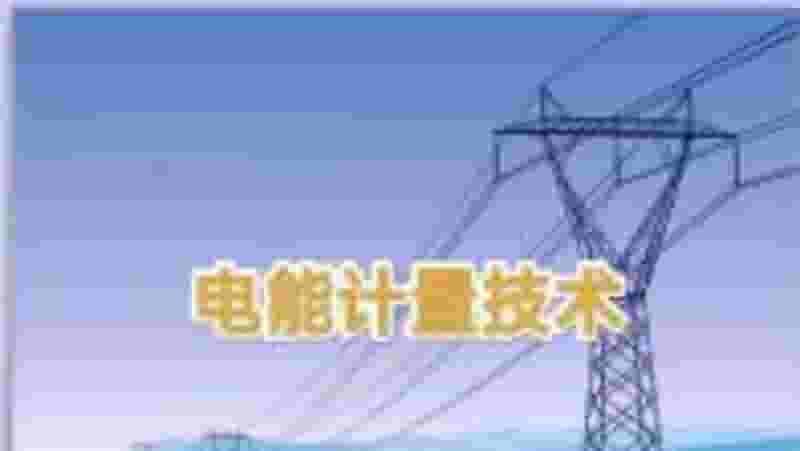高职英语Unit10课件
智慧职教icve

部件4 real life skills
unit 10生成your choice! (推荐六格) )。第1部分清单和速度一.学习要求
(一)掌握听力材料中的相关词汇和句型;
)二)理解内容,完成规定练习,能轻松复述听到的内容;(三)能用英语与同伴谈论生活中各自不同的选择和决定。二.学法指导(一)通过自主学习、讨论等方式理解和掌握听短文的内容力量中的推断技巧;
(二)学习本话题相关词汇和句型
(三)在日常交流中能够正确运用所学知识与同伴进行本话题的简单的对话。三.课程探究1 .探索问题
)1) it’salittlebright,isn’tit? 颜色有点浅呢。 这是犯规语义疑问句。
The clock is slow,isn’tit?theclockisn’ts low,is it?摘要:反义疑问句由两部分组成,前一部分为陈述句,后一部分为一很短的疑问句。部分肯定(否定)疑问) )。部分否定(肯定)疑问)。A先生是的
考验(用反义疑问句完成下一句) )。
fanny didn’tgohomelastnight?
They have learnt English for years,you can’tspeakenglish?
You have no classes tomorrow,Have a little more coffee,let’smeetatthestation,They had a good time yesterday,Beautiful day,
Everyone knows how to do it,Seeing is believing,did he
haven’ttheycan you
do you/have youwillyou/won’tyou壳牌wedidn’ttheyisn’titdon’ttheyisn’tit
考验(将下面的对话翻译成中文) ) ) ) ) ) ) ) ) ) ) ) ) ) ) ) ) ) ) ) )。--- thisclockdoesn’twork well,does it?---是,it does---No,itdoesn’t。这个表不好用啊。
不,很容易使用是的,不好用
)2) iwonderwhatthey’llthinkofyouryellowhair?我不知道他们会怎么想你的黄头发。I wonder ---想知道---,不知道---,怀疑---万达
I wonder where they are。我不知道能不能把那本书拿过来。考验:(翻译) ) ) ) )。
I (怀疑) if they know.) )根据给定的中文完成句子)。我不知道他们在哪里。 (wonder ) )中译本英) )。
iwonderifyoucouldpleasegetthebookforme.(英译中))3) I’mnotsureifiagreewithyou? 我不知道我是否同意你的意见?I’mnotsurewhether/if----我不知道是不是------后面有if/whether引线指导的宾语从句d
选择正确答案:
(I ' mnotsureifthegame _ _ _.ifit _ _ _ _,I'll let you know。A. puts off; will put off B. is put off; will be put offC. will put off; puts off D. will be put off; is put off)4) what’simportantisyourpersonality .译:重要的是你的个性。what’simportant是主语从句。)5) I’mafraidwedon’tseeeyetoeyeonthis .也许我们就在这一点上看法完全不一致
seeeyetoeye(withsb.onsth.)---看法完全一致id on’tseeyetoeyewithyou .我和你的看法完全不同。我们在很多事情上观点不同。考验:(翻译) ) ) ) )。
we don’tseeyetoeyewitheachotheronmanythings。2 .知识链接) a little用肯定句修饰动词、形容词、副词、比较级,表示一点
thespeakerspokeupalittlesoastomakehimselfheardmoreclearly。把演讲者的声音提高了一点,以便别人听得更清楚。
热器e is a little food left for lunch. 午饭只能吃剩下的一点食品了Can you speak a little louder ?你能再说高点吗?(2)think of 想起,对------有某种看法,想出想到I thought of my parents last night . 昨晚我想起了我的父母。What do you think of that book ? 你认为那本书怎么样?He always thinks of himself as a great man . 他总把自己当成一个伟人。think over 仔细考虑 think about 考虑某事think aloud 自言自语 think highly/much of ---重视------think of --- as --- 把-----看作(3) dye one’s hair yellow 把头发染成黄色
dye vt. 染,给……染色;(其动词基本形式为:dyes, dyeing, dyed, dyed)用法:dye + 宾语(名词或代词);
例:This dress has been dyed several times.dye + 宾语+补语(形容词或介词短语)例:She dyed her white skirt green.Sunlight dyed the sky red.dye vi.着色;(独立作谓语)例:This cloth dyes easily.dyeing n. 染色 dyer n.染工
dye n.[c][u] 染料 a bottle of dye 一瓶染料;dye house 染坊,染厂.;dye stuff 染料,颜料dying a. (常作定语,无比较级)垂死的,快死的;
a dying man 垂死的人; her dying words 她的临终遗言(4)agree with①表示同意某人或某人的意见、想法、分析、解释等 。
I don’t agree with you. 我不同意你的意见。They agreed with this idea. 他们同意这个想法。I agree with what you say. 我同意你说的。②表示“ (食物、天气、工作等)对…适宜”:The weather does not agree with me. 这种天气对我不适宜。Hard work does not agree with him. 艰苦的工作对他不适宜。③表示“……与……一致”:What he does does not agree with what he says. 他言行不一致。比较:
中职学校

agree to --- 表示赞同某种提议、方法、计划等We agreed to leave at once. (5)I’m not sure if / whether --- 不能确定是不是------sure 常搭配的词组有:be sure to do 一定做某事 be sure of / about sth. 对某事有把握be sure that --- 肯定------ make sure of 确保make sure that --- 确保-------,弄明白------I’m sure that we will have fine weather for our picnic . 我敢肯定我们野餐时天气一定很好。
Mary is sure to come this afternoon .玛丽今天下午一定来。He’s sure of passing the exam . 他确信考试会及格。He’s made sure of the time and place . 他确定了时间和地点。Can you make sure that you will succeed? 你能确保成功吗?(6)I’m afraid --- 恐怕,感到遗憾I’m afraid he won’t come tonight . 恐怕他今晚不会来了。与afraid相关的词组有:
I’m afraid not . 恐怕不------be afraid of sth. 害怕某物be afraid of doing sth. 害怕做某事be afraid to do sth. (因害怕)不敢做某事
The boy is afraid of the tiger in the zoo .那个男孩害怕动物园里的老虎。Don’t be afraid of trying new things 不要害怕尝试新事物。She was afraid to see her father because she had done something wrong . 她不敢见她父亲因为她做错事了。3.当堂训练
完成P168 练习三、课堂探究1. 问题探究
(1)听对话B,完成相关练习。(2) 翻译下列词组
in the end _______________ ask his teacher for help _________________visit great places for free ______________ run a restaurant _____________over and over again ________________ after graduation ______________听说B 最后 向老师求助
免费参观好地方 经营餐厅再三 毕业后2.知识链接
(1) run a restaurant 经营一家饭店run : v. 跑,奔;逃跑;办;经营,开动
例: He run downstairs to meet her . 他跑下楼去迎接他。He runs a study class every summer vacation . 每个暑假他都办个学习班。The engine is running properly . 发动机运转良好。3.当堂训练
完成170练习8
Part 2 Reading and Writing一、学习要求
(一) 全面理解这篇阅读材料,掌握课文中相关词汇及短语。(二) 通过略读、细读、笔记摘要等阅读方式,提高阅读技巧。(三) 积极参加小组讨论,培养团队合作精神。(一)了解并掌握课文主要信息。(二)掌握课文中的一些重要语言点。
(三)能以课文语言及内容为参照和模仿,表达相关话题。二、学法指导三、课堂探究1. 问题探究
(1)however 表示转折,其意为“可是”“仍然”等。可放在句首、句中或句末,通常用逗号与句子其他成分隔开。
My room is small; however, it’s comfortable. 我的房间很小,但却很舒服。He said that it was so; he was mistaken, however. 他说情况如此,可是他错了。注:however不能像 but(但是)那样直接连接两个句子(注意正句中的标点符号)。试练(判断正误)
我们都已尽了最大的努力,不过我们还是输了。
We all tried our best, however we lost the game. We all tried our best, but we lost the game. We all tried our best; however, we lost the game. We all tried our best. However, we lost the game. 误正正正
(2) My first decision , to buy a used laptop , led to problems with money . 睡得太迟导致了他今天早上上班迟到。努力造就成功,失败在于懒惰。
This is the road leading to the village church. 试练(翻译下列句子)
Sleeping too late led to his being late for work this morning. Hard work leads to success and failure lies in laziness. 这是通往乡村教堂的路。我的第一个决定,就是想买一台二手手提,导致了我的经济危机。lead to : 通向,通往;导致,造成
(lead 动词基本形式:lead –leads-leading-led-led)例:This road leads to the hotel. 这条路通到旅馆。Smoking can lead to lung cancer. 抽烟可能导致肺癌。(3) I shouldn’t have gone . 我本不应该走。You should have come earlier , for it’s your duty today. 试练(翻译)
你应该早点来的,今天是你值日。(should have done )shouldn't have done表示不应该做但实际做了例:He shouldn't have known this. 他本不该知道这个should have done 本应该 (应该做而没做)例:He should have worked hard , but now it’s too late. 他本应该努力学习的,但现在太晚了。
(4) As soon as I saw it , I fell in love , and didn’t care how much it cost. 那家伙两个月后没付房租就搬走了。without:(与-ing形式连用)不,无,没。如:
They had to stand for hours without changing position. 他们得一动不动地站几个小时。
(5) The guy moved out two months later ,without paying his rent.我一看到这台手提,就喜欢上了它,就没在乎要花多少钱。fall in love 爱上,喜欢上 fall asleep 睡着 fall ill 病倒你也不问一声就自己吃起来是不太礼貌的。She entered the room without knocking. 试练(中英互译)
It wasn't very polite of you to serve yourself without asking. 她没敲门就进了房间。(6) But now I believe it’s worth the time it takes.但现在我认为花点时间值。be (well) worth doing sth. ……某事(很)值得被做
例:The question is not worth discussing again and again.2.知识链接
(1) 比较spend , cost , take , pay 用法spend,cost,take和pay都可以表示“花费”,但用法却不尽相同。spend的主语必须是人, 常用于以下结构:spend time /money on sth. 在……上花费时间(金钱)。
例:I spent two hours on this maths problem. 这道数学题花了我两个小时。
spend time / money (in) doing sth. 花费时间(金钱)做某事。例:They spent two years (in) building this bridge. 造这座桥花了他们两年时间。cost的主语是物 , 常见用法如下:
Sth. costs (sb.) +金钱,某物花了(某人)多少钱。
A new computer costs a lot of money. 买一台新电脑要花一大笔钱。take后面常跟双宾语, 常见用法如下:
It takes sb. +时间+to do sth. 做某事花了某人多少时间。It took them three years to build this road. 他们用了三年时间修完了这条路。pay的基本用法是:
pay (sb.) money for sth. 付钱(给某人)买……。
I have to pay them 20 pounds for this room each month. 我每个月要付20英磅的房租。pay for sth. 付……的钱。
高校信息化建设

They pay us every month.他们每月给我们报酬。(2) even more financial problem : 更多的经济问题even /much /still far / rather +形容词或副词比较级 表示程度更进一层。例:He knows much / far/still / a lot than I about it . 关于这他比我懂得多。She works far/ even harder than anyone else at her studies. 她学习上比任何人用功的多。(3) used to do sth. 过去常常做某事注意下列相关用法:
be/ get/ become used to sth. / doing sth. 习惯于(做)某事be used to do sh. 被用来做某事
She has got used to living in the countryside now ..Is he used to the traffic rules of America now ?Computer are used to do many things for people now . She used to work hard, usedn’t he / didn’t he ?Part 3 Language in Use一、学习要求
(一) 学习国际音标/ j/ / w/ / l/ / r/,掌握其发音及有关字母组合发音规则;(二) 学习并掌握一般过去时的构成与用法。二、学法指导
(一)上网学习国际音标/ j/ / w/ / l/ / r/的发音方法,对镜发音纠音;(二)回忆或查阅有关语法资料,掌握一般过去时的基本结构,动词的变化规则,常用的时间状语等。三、知识要点
时态:“一般过去时”用法介绍:
1.一般过去时表示过去某个时间里发生的动作或状态;过去习惯性、经常性的动作、行为;过去主语所具备的能力和性格。2.动词的规则变化规则变化:在动词后
(1)直接加ed,例:work— worked look—looked play—played, (2)以e结尾的单词,直接加d,例:live —lived hope—hoped use—used, (3) 以辅音字母+y结尾的词,变y为i加ed,例:study— studied carry—carried worry—worried, (4)以元音字母+y结尾的,直接加ed,例:enjoy —enjoyed play—played (5 )以重读闭音节结尾的,双写最后的辅音字母+ed,例: stop— stopped plan—planned3.动词的不规则变化:
不规则动词的过去式需特别记忆。如:am(is)-was, are-were, go-went, come-came, take-took, have (has)-had等。详细可查阅本册教材P183—P184,或者查阅《英汉词典》或网络等资源。4.句子基本结构:
肯定形式:主语+动词过去式+其他
否定形式:①was/were+not;②在行为动词前加didn't,同时还原行为动词为原形一般疑问句:Did+主语+do+其他?或 Was/Were+主语+do+其他?特殊疑问句:疑问词+一般疑问句语序?5.一般过去时的用法
(1)一般过去时表示在过去某个特定时间发生,也可以表示过去习惯性、经常性的动作。一般过去时不强调动作对现在的影响,只说明过去的事情。
I had a word with Julia this morning.今天早晨,我跟朱丽亚说了几句话。He smoked many cigarettes a day until he gave up. 他没有戒烟的那阵子,抽烟抽得可凶了。(2) 带有确定的过去时间状语时,要用过去时。如:yesterday(昨
天)、two days ago…(两天前…… )、last year…(去年…)、the other day(前几天)、once upon a time(很久以前)、 just now(刚才)、in the old days(过去的日子里)、before liberation(解放前…)、 When I was 8 years old(当我八岁时…)、at+一个时间点Did you have a party the other day? 前几天,你们开了晚会了吗?Lei Feng was a good soldier. 雷锋是个好战士。(3)表示过去连续发生的动作时,要用过去时。这种情况下,往往没有表示过去的时间状语,而通过上下文来表示。The boy opened his eyes for a moment,looked at the captain,and then died.
那男孩把眼睛张开了一会儿,看看船长,然后就去世了。
(4) 表示过去一段时间内经常或反复的动作。常与always,never等连用。
Mrs. Peter always carried an umbrella. 彼得太太过去老是带着一把伞。(5) used to do(过去常常做,而现在不那样做了) He used to drink. 他过去喝酒。
I used to take a walk in the morning. 我过去是在早晨散步。(6)有些句子,虽然没有表示过去确定时间的状语,但实际上是指过去发生的动作或存在的状态的话,也要用过去时I didn't know you were in Paris. 我不知道你在巴黎。(因为在说话时,我已经知道你在巴黎了。这句话指的是说话之前,
所以只能用过去时表示。实际上,这句话暗指:But now I know you are here.)I thought you were ill. 我以为你病了呢。
(这句话应是在说话之前,我以为你病了。但是现在我知道你没病)注意事项:用一般过去时还是用现在完成时,取决于动作是否对现在有影响。
Have you had your lunch? 你吃过午饭了吗?(你现在不饿吗?)Yes, I have. 是的,我已经吃过了。(已经吃饱了,不想再吃了。)When did you have it? 你是什么时候吃的?(关心的是吃的动作发生在何时。)I had it about ten minutes ago. 我大约是十分钟以前吃的。 )I ate it at 6:45。我在六点四十五分吃了。
例题解析:
1.Mr. Mott is out. But he ______ here a few minutes ago. A. was B. is C. will be D. would be解析:时分钟前发生的动作, 应该用一般过去时。 应选 A2.---Hi, Tom.
---Hello, Fancy. I ______ you were here. A. don‘t know B. won’t think C. think D. didn't know解析:虽然句中没有明确的时间状语, 但是可以通过上下文语境判断出, 我说这话之前不知道,但是现在知道了,表示过去的动作,要用过去时态。所以选D
3.He promised to tell me by himself when I ______. A. come B. would come C. came D. had come解析:在时间状语从句中,用一般过去时表示过去将来。应选CPart 4 Real Life Skills 一、学习要求
(一) 学习并掌握职业名称的词汇;
(二) 能用英语简单地介绍相关职业的工作素养要求和工作内容情况,尤其是自己想从事的职业,以为今后的自己树立正确的择业观打下基础。二、学法指导
(一)与同伴讨论或上网查询有关职业名称的英语表达;(二)走近社会,进一步了解有关职业素养要求和工作要求;(三)能用所学语言知识熟练表述自己的个性,而后对照行业职业标准要求,树立正确的择业观。三、课堂探究1. 问题探究
(1) A nurse takes good care of the sick and injured in a hospital .护士在医院照料好病人和伤者。the sick 病人, the injured 伤者“the+形容词”表示一类具有某种特征或特性的人时,通常表示复数意义,若用作主语,谓语要用复数。如:
The rich get richer and the poor get poorer. 富者愈富,贫者愈贫。The old are more likely to catch cold than the young. 老年人比年轻人更容易感冒。“the+形容词”若表示抽象概念,则表示单数意义,用作主语时,谓语要用单数。如:
He doesn’t know the right from the wrong. 他不辨是非。(2) She was good at math and science , and had no trouble getting into a nursing school.她擅长数学和科学,因此她毫不费力地就进入了卫校。
have trouble / difficulty / problem (in) doing sth. He had trouble in carrying out the plan 他执行任务有困难(3) Working in hospital , though , made her unhappy . 虽然在医院工作,但她并不开心。though (1)连接词 conj. 虽然;尽管(2)副词 ad. (一般放在句尾)然而
Though he is rich, his life is not happy.他虽然很有钱,但生活并不幸福。It was a hard job, he took it though. 这是份苦差事,可他还是接受了。(4)The fact that she was good at her job, she discovered , didn’t automatically mean that she was happy or satisfied with it .她发现她擅长这项工作并不意味着她开心或满意。The fact that ----: that 引导的同位语从句表示fact 的内容。一般情况下同位语从句跟在某些名词后面(news ,idea , hope , fact, message ,promise 等)名词后面,用以说明该名词所表达的内容。
I’ve come from Mr. Wang with a message that he won’t be able to see you this afternoon 我从王先生那得知一个消息,他说他今天下午不能来看你了。
Where did you get the idea that I couldn’t come . 你从哪听说我不能来。(5) She had to consider her values , as well as her skills.Consider+ n./pron./v.-ing /从句/ 疑问词+ 不定式 作“考虑”讲You’d better consider my suggestion. 你最好考虑一下我的建议。I’m considering going abroad some day . 我正考虑有天能出国We must consider what to do next . 我们必须考虑下一步做什么as well as 用作连词。连接两个并列的同等成分,其意义为“不但……而
且……”,“既……又……”,这时相当于“not only…but also..”。它所连接的部分既可以是单词、短语,也可以是句子。He speaks Japanese as well as English and French.他不但讲英语和法语,而且还讲日语。
We shall travel by night as well as by day. 我们将日夜兼程。用作介词。此时,相当于besides,意为“除……之外”,后常接名词、动名词。As well as eating five dishes, they drank three bottles of wine. 除了五道菜外,他们还喝了三瓶酒。As well as visiting the old man, he helped to clean the room. 除看望老人外,他还帮助打扫房间。用于as…as…结构中。意为“和……一样(好)”
John plays football as well as, if not better than, David. 约翰足球即使踢得不比大卫更好,也和他一样好。在使用as well as 时还应注意以下几点:
连接主语时 其谓语动词的人称和数应与放在as well as 之前的名词或代词保持
一致。如:Mary as well as I has been to the Great Wall. 我和玛丽去过长城。连接谓语动词时 一般说来,连接两个谓语动词时,前后时态与形式应保持一致。如:They play the piano as well as sing.他们不但会唱歌,而且会弹琴。2.当堂训练
( 1)完成P179练习3,练习4( 2)完成下列句子Do you (理解……有困难)spoken English ?
They were all very much worried over . (对你生病这件事)
She (她没有她朋友说得好), but her writing is excellent. People (不允许在这抽烟).(因为我能充分利用时间) to do
what I want to learn. I read more books.have any difficulty in understandingthe fact that you were sickdoesn’t speak as well as her friendare not allowed to smoke here Because I can make good use of time 谢谢!